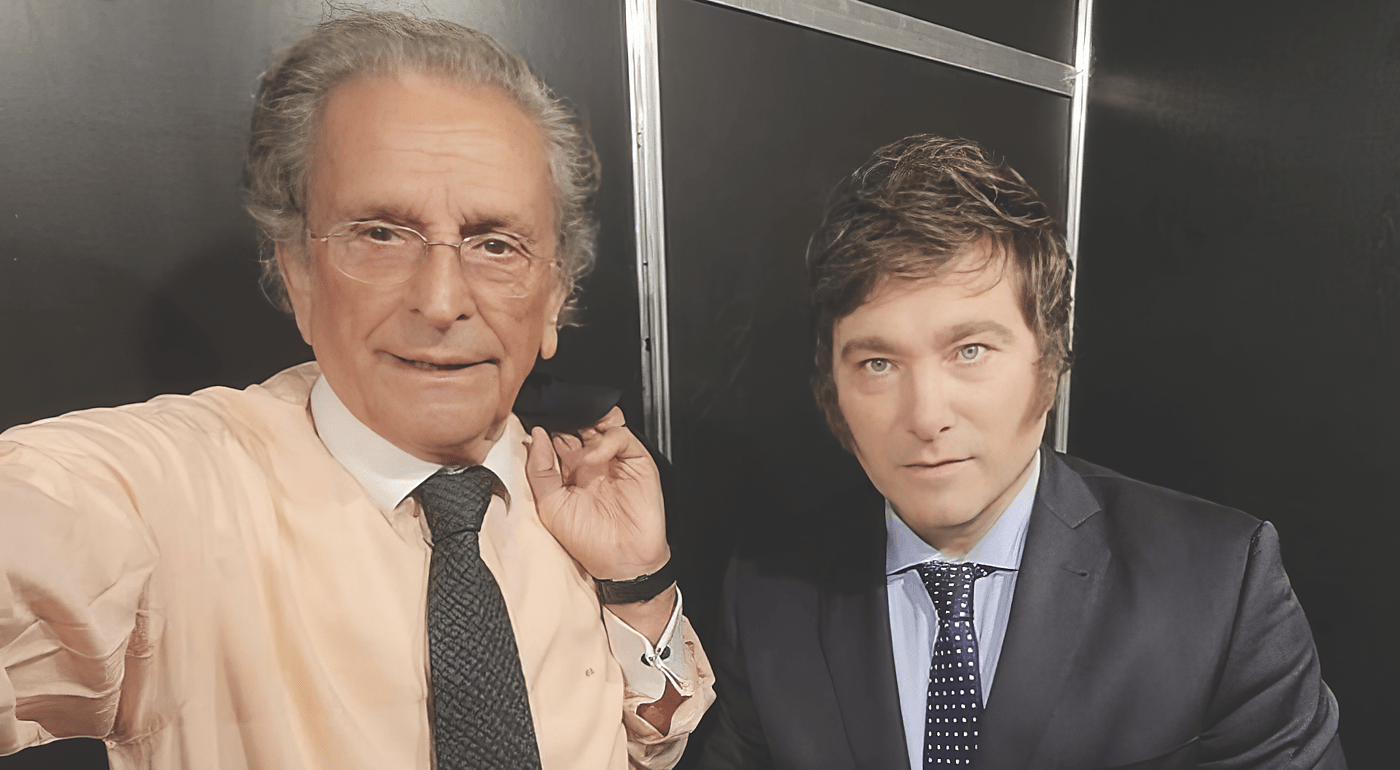Cato promotes the ideas of liberty not just in the United States but around the world. The tragic loss of freedom in Hong Kong is one of the most dramatic modern examples of how quickly a region can be stripped of its liberty.
Confronting Global Challenges to Liberty
Milton Friedman Prize: Hong Kong’s Jimmy Lai
As Beijing brazenly violated Hong Kongers’ basic rights, media entrepreneur and democracy activist Jimmy Lai became one of the territory’s leading dissidents and an eloquent champion of human freedom. While Lai defended Hong Kong’s traditional liberties, the authorities shut down his popular newspaper, Apple Daily, and threw him in jail, where he is currently on trial on trumped-up national security charges that could result in life imprisonment.
In recognition of his incredible bravery, Cato awarded the 2023 Milton Friedman Prize for Advancing Liberty to Jimmy Lai at the National Building Museum in Washington, DC, on May 18. Established in 2002 and presented every two years, the Friedman Prize is the leading international award for significant contributions toward advancing individual liberty. Jimmy Lai’s son, Sebastien Lai, accepted the award on behalf of his father, and Wall Street Journal editorial board member William McGurn, who is Jimmy Lai’s godfather, delivered a moving keynote address. The prize inspired media coverage of the ongoing struggle for freedom in Hong Kong, including a Wall Street Journal editorial board feature on the Friedman Prize.

At an emotionally moving dinner and ceremony in Washington, DC, the Cato Institute awarded the Milton Friedman Prize for Advancing Liberty to Jimmy Lai, a businessman and vocal advocate for democracy and freedom in Hong Kong. Lai was unable to accept the award in person because he is imprisoned by the Chinese government. The award was formally presented by former imprisoned Chinese dissident Tong Yi (right) and accepted in Lai’s absence by his son Sebastien Lai (left).
Argentina and Dollarization
For decades, Cato has published in-depth research on why Argentina should dollarize its economy, making Cato the institution that has most focused on that topic in the United States and perhaps the world. In July, Cato published a briefing paper calling on Argentina to dollarize, citing the success of dollarization in Panama, Ecuador, and El Salvador.
Weeks later, Argentine presidential candidate Javier Milei, who had made dollarization a central component of his campaign, began a series of electoral victories that led to his presidency. With Milei’s rise to power, Cato’s work gained new international prominence. Milei frequently cited Cato adjunct scholar Alberto Benegas Lynch Jr. as Argentina’s leading libertarian intellectual, including at his inauguration and in his fiery speech before the World Economic Forum in Davos, and he has reposted numerous Cato articles and blog posts about Argentine policy reform in English and Spanish on his social media platforms.
In August, the Wall Street Journal published a letter from Cato scholars Daniel Raisbeck and Gabriela Calderón de Burgos urging Argentina not to delay dollarization. Cato was cited on this issue in the Washington Post and the Financial Times. In September, Cato hosted a virtual policy forum featuring Milei’s adviser on dollarization, economist Emilio Ocampo, in conversation with Manuel Hinds, former minister of finance of El Salvador.

In Argentina as well as in the United States, Cato’s voice has helped make the ideas of freedom compelling for policymakers, thought leaders, and the public. Cato’s Spanish-language website, elcato.org, hosts analyses from Latin American luminaries, including Cato adjunct scholar Alberto Benegas Lynch Jr. (left). Argentine president Javier Milei (right) regularly quotes Benegas Lynch, whom he cites as the country’s most important classical liberal thinker, and shares Cato’s work with his 2.3 million followers on X.
John Locke versus the Taliban
Cato senior fellow Mustafa Akyol, who was described as “probably the most notable Muslim modernist and reformer” by the Thinking Muslim podcast, is a foremost scholar championing the compatibility of Islam and classical liberalism and encouraging readers worldwide to advocate liberty in their own nations. He frequently publishes op-eds in leading newspapers such as the Washington Post (“Erdoğan triumphed by vowing to Make Turkey Great Again”) and National Review.
In August, he gave an online lecture to a large group of Muslims in Kabul, directly under the nose of the Taliban. The lecture was organized by the Afghanistan Economic and Legal Studies Organization, who translated Akyol’s Libertarianism.org book, Why, as a Muslim, I Defend Liberty, into the local Dari language. The event had around 100 participants, including 70 women, locked into their homes by the Taliban.
Human Freedom Index
The Human Freedom Index 2023 quantified the severe deterioration of human freedom around the globe through the second year of the pandemic, underscoring F. A. Hayek’s famous quote: “Emergencies have always been the pretext on which the safeguards of individual liberty have been eroded.” The United States is now ranked 17th across the index’s 86 economic and personal freedom indicators—a drop of 10 spots from seventh since the year 2000. Ian Vásquez, vice president for international studies, coauthored the index with Fred McMahon, Ryan Murphy, and Guillermina Sutter Schneider. In December, the Wall Street Journal featured the index, which is copublished with the Fraser Institute.
